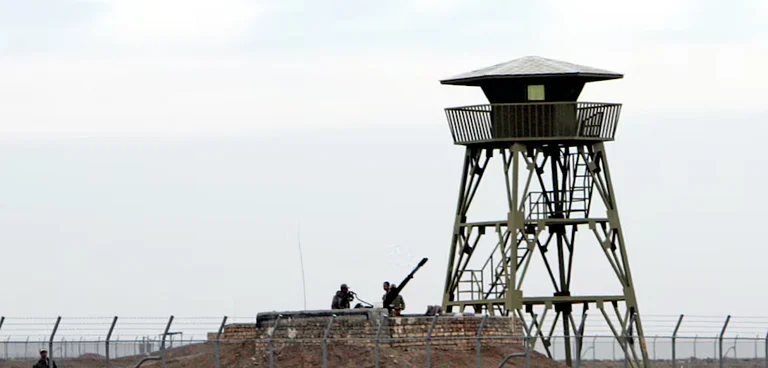On October 5, 2024, a 4.6 magnitude earthquake hit Iran, with its epicenter in Aradan, Semnan province, at a shallow depth of 10 kilometers, as per the US Geological Survey. The tremor, which occurred around 10:45 PM local time, was felt as far as Tehran, located approximately 110 kilometers away.
Did Iran Conduct A Secret Nuclear Test? Earthquake Tremors Spark Fears Amid Rising Middle-East Tensions | Explained
Recent seismic activity in Iran, a 4.6 magnitude earthquake on October 5, has sparked widespread speculation about a possible underground nuclear test, fueled by regional tensions with Israel. While experts remain cautious, the incident has heightened concerns amid the escalating conflict in the Middle East.
Shortly after, a weaker tremor was reported in Israel, fueling widespread speculation online. Many social media users quickly linked the seismic activity to a potential covert nuclear test by Iran, citing the ongoing tensions between the two nations. One user on X (formerly Twitter) stated, “Iran has gone nuclear since last night. They used the test bombs 10 km below the surface near Semnan to ensure minimum radiation exposure and it resulted in a 4.6 scale earthquake which was recorded by seismographs.”
Speculation grew further due to the earthquake's proximity to Iran's nuclear facilities, sparking concerns about the possibility of an underground nuclear test. One post claimed, “That Iranian earthquake really scared Israel. They're blubbering on whether they'll attack Iran. Looks like the secret is having nukes. No country will mess with a nuclear power.”
As the discussions unfolded, another user pointed out the geopolitical implications of the earthquake that hit Iran yesterday. He highlighted, "Rumours are that it was a nuclear test. In Feb 2013 a earthquake in N Korea turned out to be a nuclear test. A Nov 2017 Iran earthquake was also dubbed as N test. Iran capable to gather enough fissile material in week's time. What’s reality?”
Concerns Over Nuclear Testing
While underground nuclear tests can cause seismic activity, experts have been cautious in their evaluation of the October 5 earthquake. Iran’s nuclear facilities, such as those at Natanz, are heavily fortified underground, but the earthquake’s relatively shallow depth raised doubts about the likelihood of a nuclear test. Successfully conducting an underground nuclear test without surface disruption is a complex process, and a magnitude of 4.6 does not conclusively point to a nuclear detonation.
Nevertheless, the tense political climate intensifies these speculations.
Escalating Middle-East Conflict
The earthquake occurred amid an ongoing violent conflict between Israel and Iran-backed groups, Hezbollah and Hamas. Tensions have been high since the October 7, 2023, Hamas attack on southern Israel, which left over 1,200 people dead. In response, Israel launched widespread airstrikes on Gaza and parts of Lebanon, resulting in the deaths of more than 42,000 Palestinians and the near-total displacement of Gaza’s population.
Israel’s military actions have extended beyond Gaza. On the anniversary of the Hamas attack, Israel carried out airstrikes in Beirut’s southern suburbs and the town of Qamatiyeh, southeast of Beirut, killing six people, including three children. This is part of Israel’s broader military campaign across the region, with reports of more than 30 strikes in southern Lebanon overnight.
In retaliation, Hezbollah launched rocket attacks on Haifa, Israel, on October 8, 2024. The Israeli military reported that approximately 130 projectiles crossed from Lebanon into Israeli territory in response to Israel’s airstrikes.
Iran’s Nuclear Capabilities
The current geopolitical tensions are closely tied to concerns over Iran’s nuclear ambitions. While Western nations have long accused Iran of pursuing a military nuclear program—an allegation Iran denies—recent speculations linking the October 5 earthquake to a possible nuclear test have reignited the debate.
Former Israeli Prime Minister Ehud Barak previously cautioned that a military strike on Iran's nuclear facilities would have limited effect, remarking, “Iran’s nuclear program is far too advanced for a strike to set it back significantly.” This sentiment reflects ongoing concerns about the difficulties Israel faces in halting Iran’s nuclear progress.
Amid the intensifying military conflict, fears of further escalation are growing. As Israel continues its airstrikes and Hezbollah launches retaliatory attacks, the risk of a wider regional conflict looms large.


